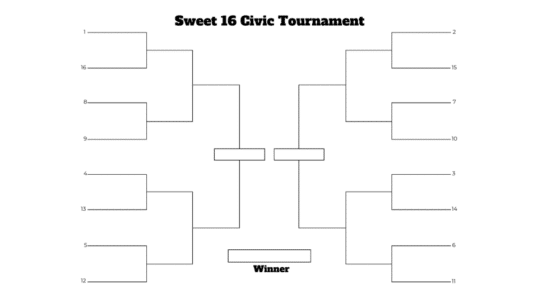Picture for a moment two very different kinds of citizen “discussions” that took place this summer. Both were focused on issues surrounding health and healthcare in our society. For the first, you might think of any of a number of the so-called “town hall” meetings with US Congressional representatives that took place in the summer of 2009. You’ve probably seen the images on TV or read about them in the papers: crowds of people eager to shout down each other or their Congressperson, rage-filled voices chanting slogans, and, in a few cases, acts of violence (you probably heard about one protester who had part of a finger bitten off after he punched a political opponent in the face). In most cases the atmosphere seemed emotionally-charged and the emotions seemed genuine, even if many of the slogans and disruptive strategies were often being scripted or promoted by corporate lobbying groups.
For the second, you might think of a group of seven citizens seated around a table, working with a neutral discussion facilitator, discussing how our society should approach health and healthcare. While they clearly disagree with each other, no one is shouting. They clearly have strong feelings about these topics, but no one is trying to shut down or exclude those who think differently. And while some of their comments, at least initially, use the same words as the slogans chanted in the large town hall meetings, the group takes time to think about what these comments could mean. They start to envision what kinds of consequences might ensue if we took these different ideas seriously. And with some prompting, they start to discuss how and why others might think differently about these topics. This discussion, as you might guess, was a public (or citizen) discussion sponsored by the Interactivity Foundation.
There are many ways these two kinds of citizen discussions diverge. Right now I’d like to focus on the different attitudes of discussion that they embody. Every discussion has a different attitude, a distinct way that the participants relate to each other and their participation in the discussion. Each kind of discussion is pervaded by its own spirit. The spirit of this summer’s Congressional town-hall meetings has been almost overwhelmingly one of fear: fear of change, fear of losing one’s place in society, fear of losing control of one’s own life, fear of the “other.” People are scared of losing what they have or what is familiar. Fear motivates people to fight for “mine.” It precludes being open to others. We feel like there are scarce resources, so we have to fight for what is ours and eliminate our opponents. When we’re in a state of fear, we have tunnel vision. We focus on what’s in front of us. We can’t think broadly or see new possibilities.
The spirit of an Interactivity Foundation discussion is predominantly one of generosity. Generosity is an attitude of openness, in this case, openness to what others might think or feel, and openness to where those ideas might lead. Generosity can spring from a sense that we’re in this together, that we have shared resources, and we’ll make more of them if we work together. Rather than fighting against each other for waht’s “mine,” the attitude of an Interactivity Foundation discussion is to explore together what could be—even when we’ll never agree about what should be. Now this doesn’t mean that fear is banished or that there’s no negativity. With any topic, and especially one like health, there will always be issues that come up, that provoke fears. With any good discussion, we are going to encounter beliefs that seem wrongheaded or even repugnant to someone in the group. But if the participants engage with a spirit of generosity, those divergences will be brought up, explored, and allowed to play out—without animosity or recrimination.
When you think about engaging in a public or citizen discussion, you might ask yourself which of the above two examples most appeals to you: the rancorous shout-fests that seem tailor-made for cable TV or the quiet meeting where diverging perspectives are collaboratively explored? If it’s the second, then think about the attitude of generosity that is necessary for it to be successful. Fear is easy enough to provoke. True generosity takes patience and deliberate effort to put into practice.



